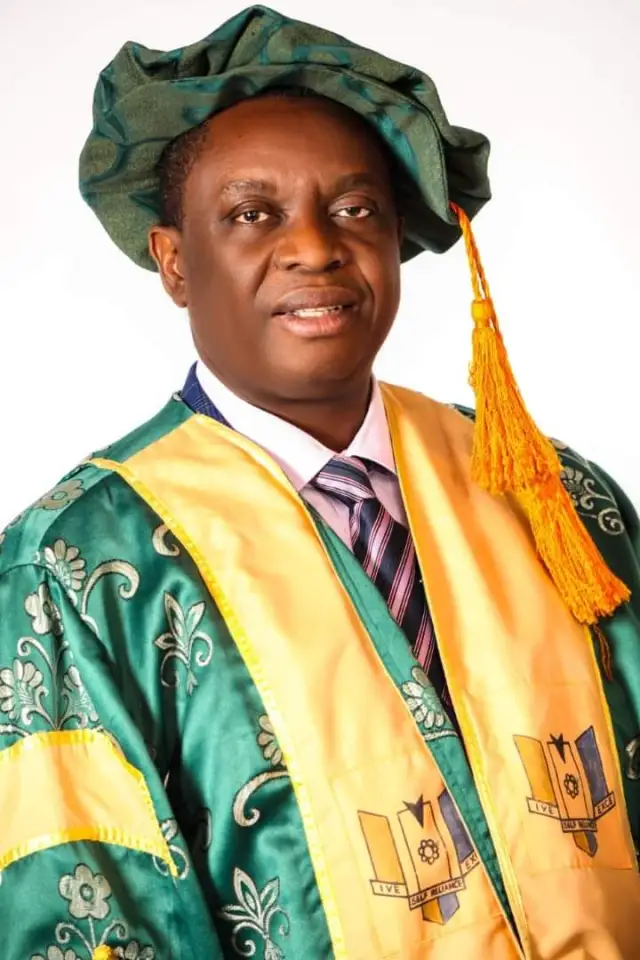The Federal Ministry of Education has nullified the appointment of Professor Bernard Odoh as the Vice Chancellor of Nnamdi Azikiwe University (UniZik), Awka, in a move that has sparked intense reactions within the university community and beyond.
Professor Odoh’s appointment, which was announced last Tuesday by the university’s Governing Council led by Ambassador Greg Mbadiwe, quickly became controversial.
The council’s decision to appoint Odoh was met with significant protests from stakeholders within the institution, who claimed that the appointment process lacked proper consultation and adherence to due protocol.
In response, the Federal Ministry of Education issued an official memo invalidating Odoh’s appointment as Vice Chancellor, as well as the recent appointment of a new registrar for the university.
The memo, signed by R. A. Ilyasu on behalf of the Permanent Secretary of the Ministry of Education, stated that the appointments were made without necessary input from stakeholders and ministry representatives.
The letter, titled “Re: Appointment of Substantive Vice Chancellor and Registrar for Nnamdi Azikiwe University, Awka,” outlined the ministry’s concerns over the Governing Council’s actions.
According to the memo, the Ministry of Education had previously met with the Governing Council on October 25, 2024, where it was formally agreed that any new appointments should only proceed after reconciling with all relevant stakeholders within the university community.
The letter noted that this agreement was ignored, as the council proceeded with the appointments without consulting the ministry’s representatives, the internal council members, or other stakeholders.
“It has come to the attention of the Ministry that your Council had gone ahead to appoint a Vice Chancellor for the University without the Representative of the Ministry, the internal council members, and other Stakeholders on Tuesday, 29th October 2024,” the letter stated.
The ministry described the council’s actions as a “gross disregard to constituted authority,” highlighting the lack of adherence to established procedures in making the appointments.
As a result, the letter declared that the appointments of both the Vice Chancellor and the registrar were “null and void.”
The ministry further directed the university to suspend all other pending appointments until the newly appointed Minister of Education assumes office.
University stakeholders and observers have reacted with mixed feelings to the decision by the Ministry of Education.
Some view the ministry’s intervention as necessary to restore order and ensure that due process is followed, while others believe the issue reflects deeper governance challenges within the university.
“This situation highlights the problems we often see in public institutions,” said a senior university lecturer who preferred to remain anonymous. “Appointments should be based on due process, but unfortunately, political and personal interests sometimes interfere.”
The lecturer added that transparency and stakeholder engagement are crucial in making decisions that impact the university’s leadership and future.
A representative from the university’s student union also expressed concern over the situation, noting that the controversy is likely to affect student morale and the institution’s public image.
“Students are worried about the constant disruptions in university administration,” the student representative said. “We want a leadership that is stable, fair, and committed to improving the academic environment.”
In recent years, there has been an increase in disputes over university leadership appointments across Nigeria, with allegations of political interference and disregard for proper channels.
Education experts warn that such conflicts, if unresolved, can lead to a decline in institutional quality and public trust.
The appointment of university vice chancellors in Nigeria is a process that typically involves input from multiple parties, including the institution’s governing council, ministry representatives, and other internal and external stakeholders.
Experts argue that involving all relevant parties ensures a fair and transparent selection process, one that considers the best interests of the academic community.
A recent report by the National Universities Commission (NUC) identified governance issues, including lack of accountability and transparency, as significant challenges facing public universities.
The NUC report recommended that the federal government implement stricter guidelines for university governance, emphasizing that transparent and fair appointments are essential for the stability and growth of Nigeria’s higher education sector.
In the meantime, the Ministry of Education has made it clear that all appointments at UniZik will remain on hold until the new Minister of Education assumes office and is able to review the situation.
“We are committed to ensuring that the right process is followed in all appointments,” a ministry spokesperson said. “Our goal is to promote fairness and accountability within our institutions.”
With the appointments now nullified, the university’s Governing Council will likely face pressure to work more closely with ministry officials and internal stakeholders to find a path forward.

